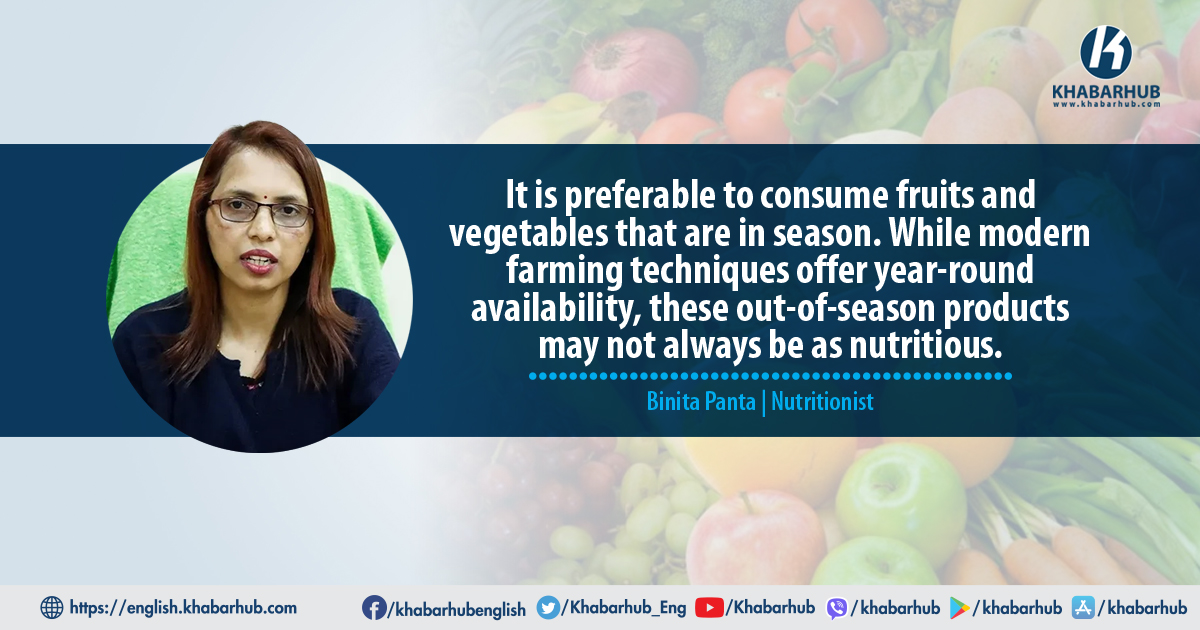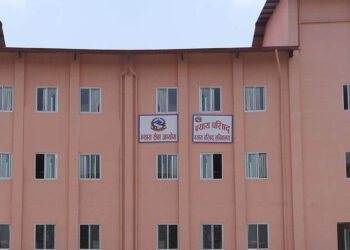KATHMANDU: Food is our basic need. Alongside staples like pulses, rice, vegetables, and bread, nature traditionally provided a variety of fruits and vegetables suited to each season.
However, advancements in agricultural technology have extended the availability of these seasonal foods throughout the year.
Maize, once a dry-season crop, is now available year-round.
Similarly, fruits like mangoes, oranges, and grapes, along with vegetables such as parsley and gourd beans, can be found on store shelves even when they are out of season.
While this extended availability benefits businesses by broadening their market reach, nutritionists advise caution.
They recommend minimizing consumption of out-of-season fruits and vegetables, as they may not offer the same nutritional value and could potentially impact health.
What season to eat fruits and vegetables?
Nutritionist Binita Panta highlights the importance of aligning our diet with seasonal availability to support overall health.
She notes that urban lifestyles have evolved, leading to increased availability of off-season fruits and vegetables due to advancements in agricultural technology.
In a conversation with Khabarhub, Panta explained, “It is preferable to consume fruits and vegetables that are in season. While modern farming techniques offer year-round availability, these out-of-season products may not always be as nutritious.”
Panta also pointed out that, based on her agricultural studies in Nepal, current practices often focus more on the use of fertilizers and pesticides than on adhering to seasonal cultivation methods.
She clarified, “Not all unseasonal produce is detrimental. For instance, corn can be grown year-round without significant health risks if consumed in moderation.”
However, she warned that thin-skinned fruits, such as mangoes and bananas, are more susceptible to pesticide residue compared to fruits with thicker skins. Thus, extra caution is advised when consuming these products.
Seasonal fruits and health
During festival seasons, there is a surge in the availability of various fruits and vegetables, as traders aim to attract consumers and maximize profits.
Currently, mangoes are on the market despite their typical season being over in Nepal.
Panta cautioned that imported mangoes may have been treated with pesticides, posing potential health risks such as stomach issues, vomiting, and skin conditions. Pesticides can also adversely affect liver health.
Monitoring and regulation
Pant expressed concern over the lack of effective government oversight regarding the import of unseasonal produce.
She advocated for stricter border controls to prevent the entry of potentially harmful food items, urging the government to enhance monitoring and enforce bans on unregulated produce to safeguard public health.
Department’s assurance
The Food Technology and Quality Control Department asserts that imported fruits and vegetables undergo quality testing at customs.
Spokesperson Mohan Krishna Maharjan confirmed that the Central Agricultural Laboratory tests domestic produce and that imported food is subject to regular scrutiny.
Maharjan also noted that with the upcoming Dasai festival, monitoring has been intensified at customs and market checkpoints to ensure the safety of food products.
While seasonal fruits and vegetables offer the best nutritional value, it’s crucial for consumers to be aware of and cautious about the quality of out-of-season produce.








Comment